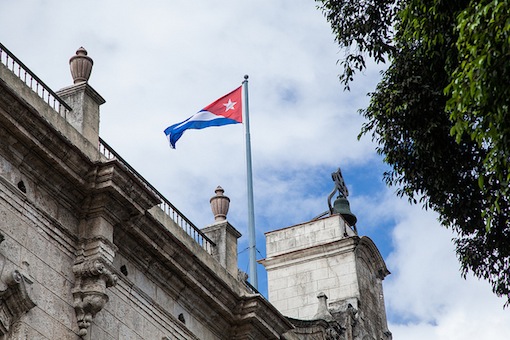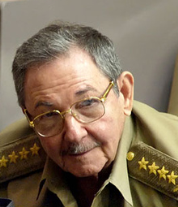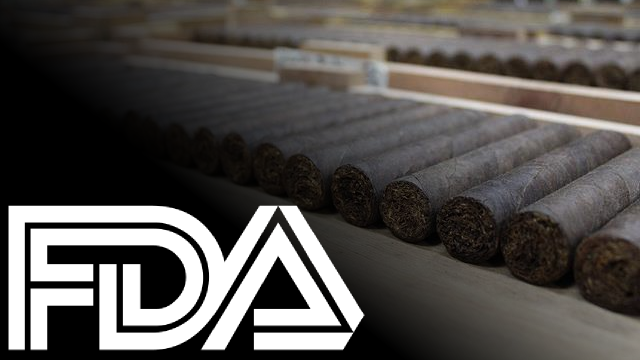Commentary: Are Cuban Cigars Really Legal? Or Special?
23 Dec 2014

No, you cannot legally import Cuban cigars unless you are a licensed visitor to Cuba.
The recent announcement about relaxed restrictions for the importation of Cuban cigars has some people (and media) confused. To clarify, the rule will allow officially licensed travelers to import $100 worth of Cuban cigars or Cuban rum into the U.S. (as part of a $400 total import allowance). This is change from the previous policy which didn’t allow any Cuban cigars to be imported.
However, travelers to Europe, Canada, Mexico, or other countries where Cuban cigars are legally sold still cannot legally import any Cuban cigars. This was confirmed for StogieGuys.com by a U.S. Treasury Department spokesman who made it clear the new rules only apply to authorized travelers going to Cuba; they do not apply to travelers going to third countries. So don’t hit the duty-free shop in Heathrow for $100 worth of Cuban cigars before returning to the U.S. because of the announcement last week. It’s still illegal, and if you get caught ignorance of the law will be no excuse.
Are Cubans really all they’re hyped to be?
It’s almost inevitable: When a non-smoker or infrequent cigar smoker discovers I smoke a lot of cigars and write about cigars, I get asked some variety of this question: Are Cubans really the best? Or is it just because they’re illegal in the U.S.? Normally, it happens a couple times a month. In the past week, since Obama announced a move towards normalized U.S. relations with Cuba, I’ve been asked this question almost daily.
So here’s my response: The best Cuban cigars are without a doubt some of the finest cigars in the world. But many Cuban cigars are not world-class, and a significant percentage of Cubans are not even particularly good.
There are two primary reasons for this. First, the rest of the world has stepped up its game since the Cuban embargo was signed into law (after President Kennedy reportedly had his press secretary procure 1,200 Cuban cigars). When the embargo became law, most of the world’s premium handmade cigars were either made in Cuba or made elsewhere with Cuban tobacco. These days, great cigars are made in many countries, in particular the Dominican Republic, Nicaragua, and Honduras, where many Cubans who fled Castro’s Cuba brought their expertise after the Cuban government nationalized the Cuban cigar industry. These cigars also are often a better value than Cubans for the same cost.
Second, the authoritarian Cuban government has limited the ability of Cuba to consistently produce excellent cigars. Without the competition of the free market and with the Cuban government owning all aspects of the Cuban cigar industry, Cuban cigars have been able to rest on their reputation. But quality control has suffered greatly and Cuban cigars are notorious for inconsistent construction, and for needing considerable aging because often the cigars are made before the tobacco has had enough time to age properly.
Still, there is no denying Cuba can produce some of the best cigar tobacco. Cigar tobacco depends on micro-climates for its flavor and quality, and parts of Cuba are indisputably some of the finest places for growing tobacco. It’s the equivalent of the Bordeaux or Burgundy regions in France for wine, and despite the Cuban government’s interference, the pride and tradition of Cuban cigars still creates some fantastic cigars.
This is compounded by the Cuban government’s need for hard currency to pay for needed imports. Cigars are one of the most valuable exports the country has, and the government still has an incentive to make cigars that they can charge top dollar for in free markets around the world. This produces enough world-class cigars to boost the reputation of all Cuban cigars.
Ultimately, it’s too simple to say that Cuban cigars’ reputation is solely based the mystique of being a forbidden fruit to Americans. There are still enough excellent Cubans, especially high-end and limited cigars, sold to keep up the reputation for excellence, even though most Cuban cigars wouldn’t be particularly noteworthy if you didn’t know where it was made.
photo credit: Flickr

 Normally, I can cross everything off rather easily. But every once in a while there’s a cigar that evades me. This year, that cigar was the new Factory 57 from 7-20-4. A friend of mine got to sample it months ago and loved it, and since then I’ve been waiting for Factory 57 to hit shelves. Well, they’re finally in. And I’ve smoked three to let you know what I think.
Normally, I can cross everything off rather easily. But every once in a while there’s a cigar that evades me. This year, that cigar was the new Factory 57 from 7-20-4. A friend of mine got to sample it months ago and loved it, and since then I’ve been waiting for Factory 57 to hit shelves. Well, they’re finally in. And I’ve smoked three to let you know what I think.

 1) On Wednesday, President Obama announced major changes for U.S.-Cuban relations as part of a prisoner exchange that was brokered with Cuban President Raúl Castro (pictured). While traveling to Cuba for tourism will remain banned, “licensed American travelers to Cuba will now be able to return to the U.S. with $400 in Cuban goods, including tobacco and alcohol products worth less than $100 combined,†according to the
1) On Wednesday, President Obama announced major changes for U.S.-Cuban relations as part of a prisoner exchange that was brokered with Cuban President Raúl Castro (pictured). While traveling to Cuba for tourism will remain banned, “licensed American travelers to Cuba will now be able to return to the U.S. with $400 in Cuban goods, including tobacco and alcohol products worth less than $100 combined,†according to the 
 It remains to be seen how Swisher International’s
It remains to be seen how Swisher International’s 
 Patrick Ashby
Co-Founder & Editor in Chief
Patrick Ashby
Co-Founder & Editor in Chief Patrick Semmens
Co-Founder & Publisher
Patrick Semmens
Co-Founder & Publisher George Edmonson
Tampa Bureau Chief
George Edmonson
Tampa Bureau Chief